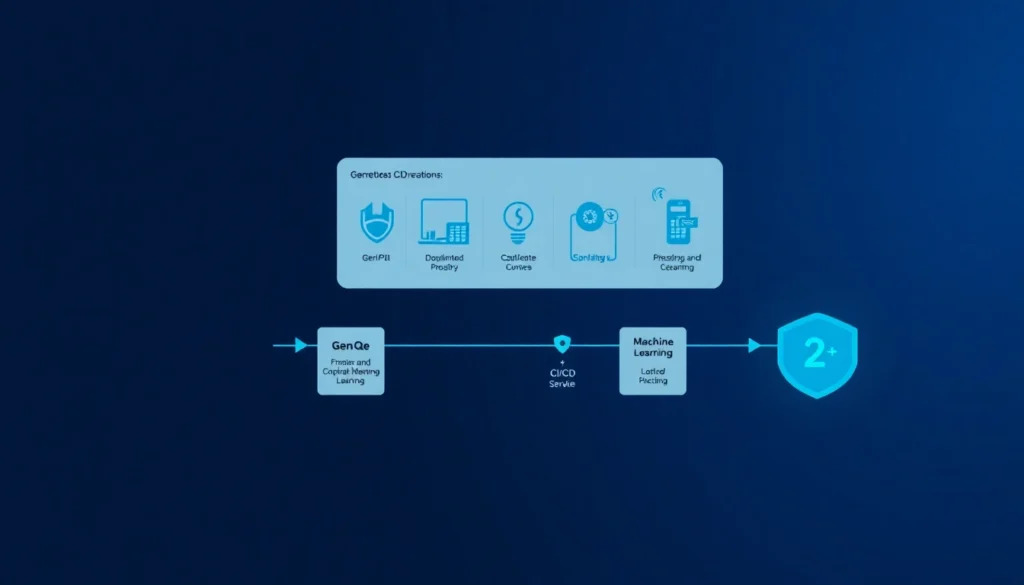How Advanced AI Tools Like GenQE Are Redefining Efficiency in Software Quality Assurance

In the realm of software development, the importance of quality assurance cannot be overstated. As applications grow increasingly complex, the traditional methodologies of software testing struggle to keep pace. This comprehensive exploration dives into the challenges of current software testing practices and demonstrates how innovative tools, particularly AI-driven solutions like GenQE, are transforming the landscape of software quality engineering.
Introduction: The Evolving Needs of Software Testing
In an age where software permeates every aspect of our lives, from mobile apps that manage our daily routines to enterprise systems that drive global businesses, ensuring the reliability and performance of these applications is more crucial than ever. However, traditional software testing methods are proving inadequate in addressing the rapid pace of development and the increasing complexity of software architectures.
The challenges are manifold: test cases need constant updates, quality assurance teams are often bogged down by repetitive tasks, and the pressure to reduce time-to-market continues to grow. Moreover, the high dependency on manual testing not only slows down the process but also introduces human error, making the goal of achieving high software quality even more elusive.
This blog post will guide you through the intricacies of modern software testing, highlighting the pain points of traditional methods and how leveraging cutting-edge technologies like GenQE can address these challenges. By the end, you’ll have a thorough understanding of the tools that are setting new standards for efficiency and effectiveness in software quality assurance.
The Limitations of Traditional Software Testing

Traditional software testing techniques, while foundational, are increasingly seen as inadequate in today’s dynamic and agile software development environment. The limitations are clear: time-consuming manual processes, difficulty in managing large test suites, and inadequate test coverage.
The Impact of Inefficient Testing Processes
Manual testing, the most basic form of software testing, is labor-intensive and prone to errors. Testers execute tests manually without the assistance of tools or scripts, which can be incredibly time-consuming and often results in a bottleneck in the development process. Additionally, manual testing struggles to keep up with the complexities and size of current software applications.
Scalability Challenges
As applications grow in scale and functionality, the number of test scenarios increases exponentially. Traditional testing methods do not scale efficiently, often leading to inadequate test coverage or significant delays in the testing phase. This gap in testing can lead to undetected bugs and issues making their way into production, which can be costly to fix and damaging to the company’s reputation.
Inconsistency and Dependency Issues
Traditional testing methods can also lead to inconsistencies in test execution due to variations in tester skill and experience. The dependency on key individuals to design and execute tests can create bottlenecks and knowledge silos, further complicating the testing process and jeopardizing project timelines.
The Rise of AI in Software Testing

To overcome the limitations of traditional methods, the software testing industry is turning to artificial intelligence (AI). AI in software testing offers the promise of automating complex processes and enhancing testing accuracy and efficiency.
Automating Repetitive Tasks
One of the most immediate benefits of integrating AI into software testing is the automation of repetitive and time-consuming tasks. AI-powered tools can automate the generation of test cases, test scripts, and even the validation of test results, freeing up human testers to focus on more strategic aspects of quality assurance.
Enhancing Test Coverage and Accuracy
AI algorithms can analyze vast amounts of data from project documentation, application logs, and previous test cases to generate comprehensive and effective test scenarios. This not only improves test coverage but also enhances the accuracy of tests by reducing the likelihood of human error.
Predictive Analytics and Real-Time Problem Solving
AI-driven testing tools can predict potential problem areas in the software by analyzing historical data and user interactions. This predictive capability allows teams to focus testing efforts where they are most needed, improving the overall efficiency of the testing process.
Leveraging GenQE in Modern Software Testing

Amidst the array of AI-driven testing tools, GenQE stands out as a particularly innovative solution. Designed to tackle the inefficiencies of traditional testing methods, GenQE integrates seamlessly into modern software development environments.
AI-Driven Test Generation
GenQE leverages AI to analyze software requirements and user behavior to automatically generate test cases. This capability not only speeds up the test creation process but also ensures that the tests are comprehensive and aligned with user expectations.
Smart Test Execution
GenQE prioritizes test cases based on risk and potential impact, ensuring that critical issues are addressed early in the testing cycle. This smart execution helps teams optimize their efforts for maximum effectiveness.
Self-Healing Automation
One of the unique features of GenQE is its self-healing capabilities. When application changes cause test scripts to fail, GenQE can automatically adapt these scripts to align with new parameters, significantly reducing downtime and maintenance efforts.
Integrating GenQE with DevOps and CI/CD

In the fast-paced world of continuous integration and continuous deployment (CI/CD), testing must be both rapid and reliable. GenQE’s compatibility with popular CI/CD tools like Jenkins, GitHub Actions, and Azure DevOps makes it an invaluable asset in modern DevOps practices.
Seamless Integration
GenQE’s ability to integrate seamlessly with existing CI/CD pipelines helps maintain the flow of continuous testing without disrupting the development process. This integration ensures that every build is automatically tested, making it possible to identify and address defects more quickly.
Enhancing Collaboration Across Teams
By fitting naturally into the CI/CD workflows, GenQE facilitates better collaboration between development, testing, and operations teams. This enhanced collaboration leads to higher software quality and faster delivery times, as issues are identified and resolved early in the development cycle.
Case Studies and Real-World Applications

To illustrate the effectiveness of modern AI-powered testing tools like GenQE, let’s explore a few case studies where these technologies have made a significant impact.
Case Study: E-Commerce Application
An e-commerce company implemented GenQE to handle their complex testing needs. By automating test case generation and employing smart test execution, the company reduced their testing time by 50% and significantly improved the quality of their online platform.
Case Study: Healthcare Software
A healthcare software provider used GenQE to enhance their testing processes. The AI-driven defect detection and self-healing automation capabilities allowed them to meet strict regulatory requirements while accelerating their software release cycle.
Conclusion: Embracing the Future of Software Testing

As we’ve explored throughout this post, the challenges of traditional software testing are manifold, but the solutions provided by AI-powered tools like GenQE are proving to be both effective and essential. By automating repetitive tasks, enhancing test coverage, and integrating seamlessly with modern development practices, these tools are not just keeping pace with the demands of software development—they are setting new standards for quality and efficiency.
For organizations looking to stay competitive in the digital age, adopting advanced testing tools is not just an option; it’s a necessity. As software continues to evolve, so too must the methods we use to ensure its quality. Embrace the future of software testing with AI-powered solutions and watch your software quality—and your business—thrive.
If you’re interested in seeing how GenQE can transform your software testing process, consider exploring its capabilities further. It might just be the tool you need to enhance your testing strategy and achieve superior software quality.
Discover More Innovative Solutions
Want to learn more about the tools and technologies discussed in this article? Explore how these innovations can be tailored to your specific needs and workflow requirements.
Our team of experts is available to answer your questions and provide personalized insights into how modern solutions like GenQE can address your specific challenges.